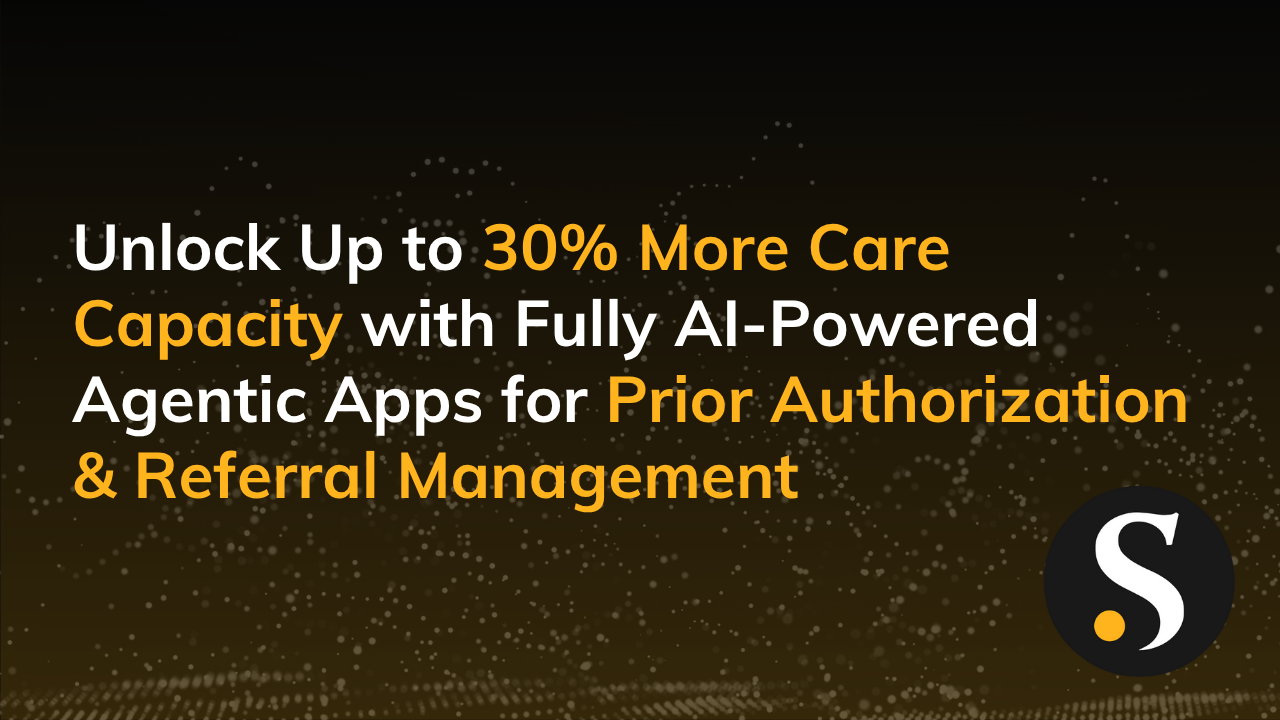Artificial Intelligence (AI) is no longer a concept reserved for sci-fi movies or tech giants — it’s becoming an integral part of everyday life and business.
But fantasy doesn’t quite match reality yet: because the conversations around AI promise so much, it’s hard to understand what AI actually delivers in a business context, today. And, because AI is evolving extremely rapidly, it can be difficult to predict future use cases for AI.
Have no fear: we wrote this guide to help you cut through the noise, understand a few real-world use cases for AI, and consider your first steps in your business AI journey. Let’s begin.
What Is AI?
First, the basics. When you think of AI, what do you imagine? Do you think of a droid from the Star Wars universe? Or perhaps Stanley Kubrick’s HAL 9000? If so, you’re way off.
According to the MIT Technology Review, there’s no agreed-upon definition of what AI actually is. The broadest way to think of AI is a set of technologies that enable computers to do things that mimic human intelligence. Hold conversations. Recognize patterns in images. And, to varying degrees of success, drive cars.
So, for the time being, take comfort in the fact that AI is nowhere close to tossing you out of an airlock.
But, don’t dismiss AI completely. It offers tangible business benefits right now, if applied to the right use cases.
The Buzz Around Generative AI
In particular, most of the current hype around AI centers around Generative AI (GenAI) and its applications.
GenAI is a type of artificial intelligence capable of creating data such as text, videos or images, seemingly on its own. The turning point for GenAI occurred in November 2023 with OpenAI’s public launch of ChatGPT, a chatbot and virtual assistant built on a large language model (LLM) and capable of having human-like conversations.
Despite breathless reports of how ChatGPT and its brethren will destroy humanity, LLMs have valuable practical applications in the business context. They are excellent at helping people quickly locate answers in huge amounts of information that would otherwise take hours to find. They allow people to interact with data using natural, everyday language — with or without a data science degree. And, most importantly, LLMs can be combined with other types of AI in a compound AI system, drastically expanding users’ abilities to interact with data other than text.
Public vs. Private GenAI
One major consideration regarding GenAI is how one should build an AI implementation.
Public AI models such as OpenAI’s ChatGPT, the Linux Foundation’s PyTorch, and others are AI models and tools are available to the public. Public AI tends to be easy to use, widely supported, and quick to develop upon, but face challenges with data security, lack of control, and unpredictable behavior due to ongoing development. Further, public AI may perform well for general use, but may fall short in specific applications, use cases, or industry contexts.
Private AI builds upon open-source AI models, but limits access to its internal workings. Private AI can be customized and offer better security and control, but require ongoing updates and more up-front time and capital investments. Most importantly, private AI can be optimized for specific business or application needs, which can result in better and more efficient performance, more predictable outcomes, and long-term stability.
In any case, as GenAI technology evolves, you can expect even more sophisticated integrations and applications that improve organizational efficiencies. But you don’t have to wait to reap these benefits — your AI journey can start today.
How to Start Your AI Journey
Build Data and BI Foundations
AI is nothing without a clean data estate. Depending on the technical maturity of your organization, and your AI goals, you may need to start with cleansing and unifying your data in a data lakehouse. To do so, you would set up a centralized repository where data from different sources is stored, organized, and managed. This doesn’t sound exciting, but it’s an essential foundation for effective AI implementation later on.
Fortunately, even if you don’t get to AI right away, cleaning your data will provide immediate business benefits. You’ll have access to real-time analytics, better data quality, and improved collaboration, helping you make better business decisions in less time.
Understand What You’re Trying to Solve With AI
Once you have a solid foundation of data to build on, you can start to think about matching the right AI toolset to the problems at hand. Here, the most important thing you can do is to gain clarity on the problems you’re trying to solve.
Today, AI implementations suffer when you try to do too much with them. They won’t always be that way, but for now, It’s best to take a more focused approach.
For example, if you work in healthcare, it might not be a good idea to use AI to create a personalized care plan for each patient. That may occur in the near future, but AI is just not quite ready for life-or-death use cases. However, today’s AI is ideal for solving problems such as institutional knowledge management. For example, you could use AI to do greatly improve the speed and accuracy of:
- Employee onboarding and training.
- Quickly finding answers to compliance, procedural, or legal questions.
- Locating and summarizing longitudinal patient data.
- Summarizing and identifying sentiment from publicly available customer reviews.
Each of these situations might normally steal hours of employee time and energy, but could be resolved in seconds or minutes with a well-implemented AI solution.
If you’re struggling to understand how your organization can invest in AI and see an ROI, get in touch with us. Skypoint’s expert AI and data engineers can help you identify viable AI use cases for your organization, and our two-day AI Bootcamp will help your organization craft a modernized data and AI framework.
Get Involved in AI Communities
Your AI journey doesn’t have to be a lonely one. There are tons of AI resources available to you, providing support, inspiration, and opportunities for collaboration.
Microsoft, AWS, and Google all offer beginner AI courses. Online forums such as StackOverflow, Reddit’s r/MachineLearning and r/generativeAI, and AI-focused Discord groups are great places to ask questions and learn from others. And, at Skypoint’s Copilot Studio in a Day workshops, you’ll learn the basics about creating your own AI Copilots.
Local meetups can help you connect with other AI professionals. Here in the Portland area, AI Portland and the Technology Association of Oregon are great places to learn about AI.
Chart a Course With AI
Embarking on your AI journey can feel daunting, but by understanding the basics of AI and focusing on practical, achievable goals, you can harness the power of AI in your organization effectively.
Start by building a solid data foundation to support AI initiatives, and be strategic in identifying specific, manageable problems that AI can solve today. As GenAI and similar technologies continue to evolve, you will find significant opportunities to enhance efficiency and decision-making — but only if you’ve laid the right groundwork.
And remember, you don’t have to navigate this journey alone. Tap into available AI resources, courses, and communities to gain insight and support. By taking these steps, you’ll be well on your way to leveraging GenAI to drive real business value and stay ahead in an increasingly competitive landscape.
Skypoint provides applied AI and data engineering for regulated industries such as healthcare, senior living, financial services, and the public sector. If you’d like to learn more about how Skypoint can help your organization implement AI, get in touch with us.




